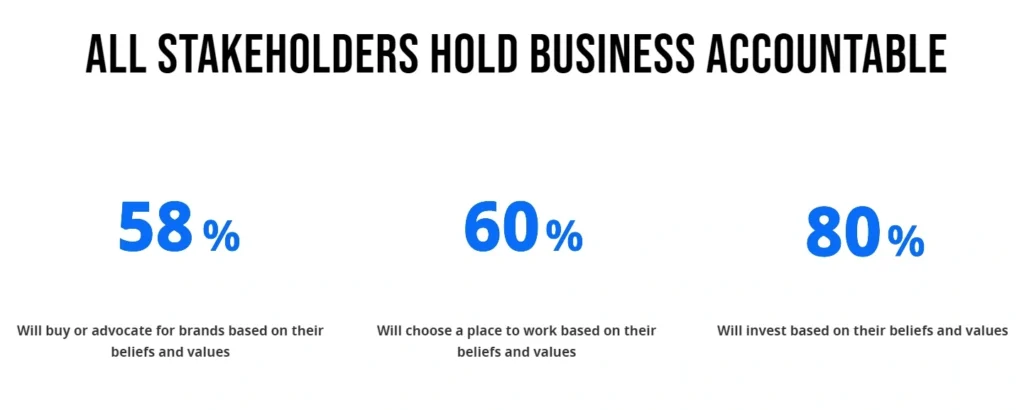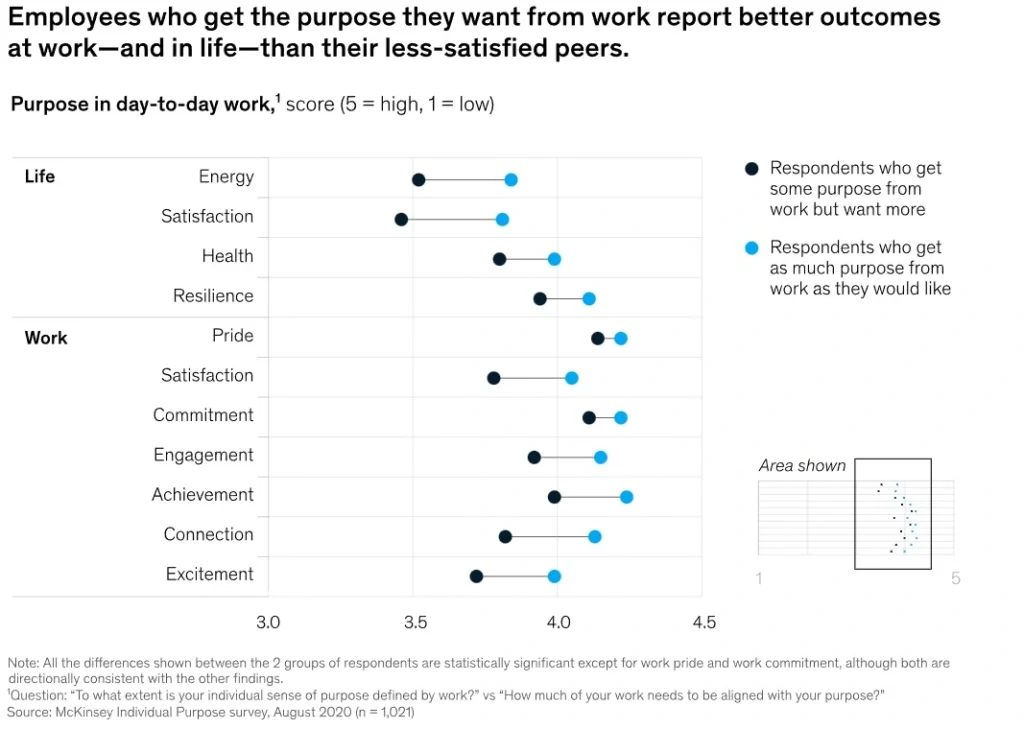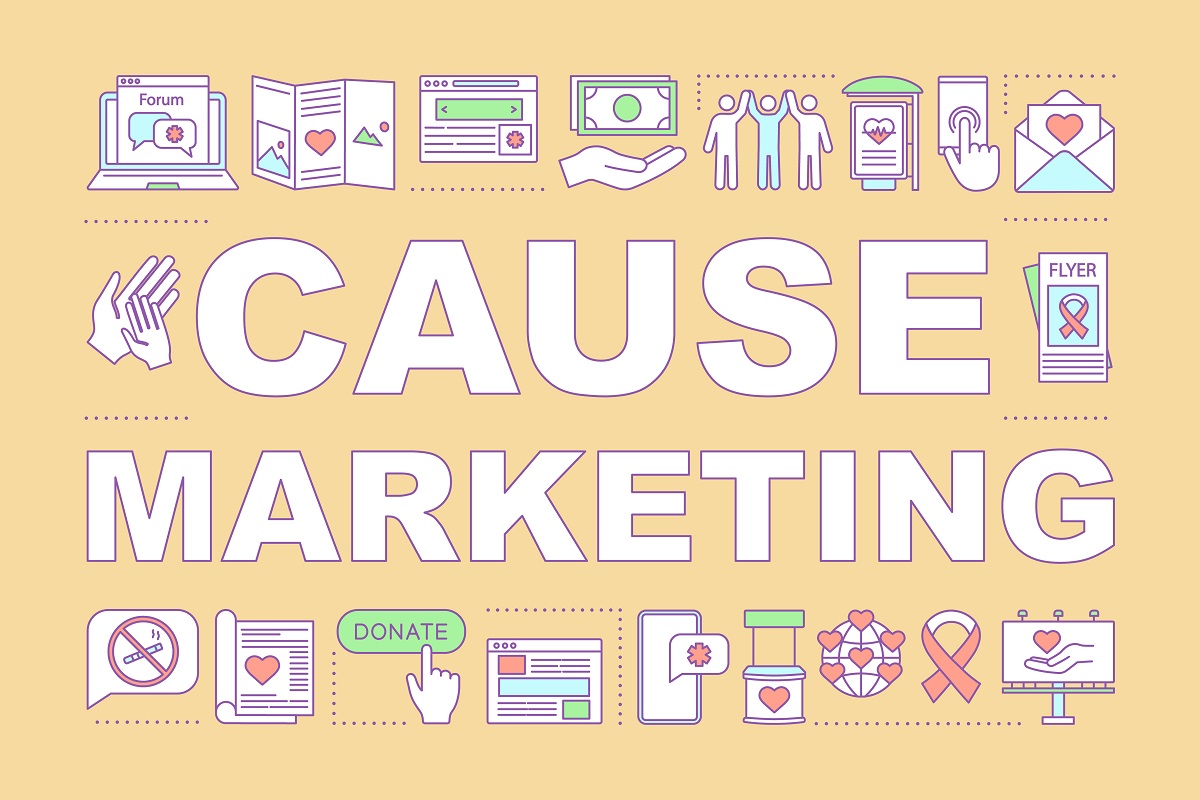Cause Marketing vs. Purpose-Driven Marketing: Key Differences
In decades past, most companies strived to remain neutral on many social and environmental issues. Today, however, many consumers want to know where businesses stand and what issues they care about. This is a primary driver behind both cause marketing and purpose-driven marketing.
While these two terms have some similarities, some key differences set them apart. Most brands have at least one cause that they are passionate about. How they incorporate that cause into the business is a defining factor in cause marketing vs. purpose-driven marketing.
Here, we will explore what sets these two marketing categories apart and what your business can do to install more purpose into your brand.
Key Takeaways
- Cause marketing typically focuses on specific issues for a set period.
- Purpose-driven marketing centers on more permanent solutions intertwined into most business operations.
- Both types of marketing can help improve employee satisfaction and help a business connect with its customers.
What Is Cause Marketing?
Cause marketing is something your business can use for specific issues and campaigns. This campaign is typically only used for a set amount of time, or it may recur annually, but it is not a primary driving force within your business. Cause marketing also has more of a narrow focus.
For example, your company might partner with a local nonprofit for the month of December. You pledge to donate a portion of your revenue to that nonprofit during your partnership. Another way to use cause marketing is to raise awareness around certain issues. Today, many companies do this on social media by incorporating trending hashtags into their campaigns.
What Is Purpose-Driven Marketing?
Purpose-driven marketing is more permanent and all-encompassing than cause marketing. A company that uses purpose-driven marketing is most likely a purpose-driven brand. This means its purpose, values, and beliefs are at the core of all business decisions. It regularly communicates its mission and purpose to its customers. A company’s purpose is usually broader than focusing on a specific cause.
An example of purpose-driven marketing would be to share your company’s mission to reduce the country’s reliance on single-use plastics. If this were your purpose, every decision in your company would revolve around this.
Cause Marketing vs. Purpose-Driven Marketing
Cause marketing and purpose-driven marketing both strive to share the positive effects your business is having on the world. This is important because all stakeholders, whether your customers, employees or investors, hold businesses accountable for many of society’s ills.

To help you understand which type of marketing is the best fit for your brand, we will look at some of their key similarities and differences.
Similarities Between Cause Marketing and Purpose-Driven Marketing
Purpose-driven marketing and cause marketing share some similarities:
- Connect with target audience: Both marketing categories can help your brand connect you’re your target audience. If prospective customers share the same goals or support the same causes, they might be encouraged to support your business.
- Focus on societal issues: Most cause marketing and purpose-driven marketing campaigns related to societal issues. This may include environmental issues, cancer research, health care, education, or sustainability.
- Help consumers make a difference: Many consumers choose to spend their money with businesses dedicated to positive change. When you promote your cause marketing and purpose-driven marketing campaigns, you can attract consumers who want to support the same causes as you.
- Improve employee satisfaction: Employees who work for companies that routinely support societal issues with clearly stated goals, and purposes feel more connected to and satisfied with their jobs, according to research from McKinsey.

Differences Between Cause Marketing and Purpose-Driven Marketing
Compare the differences between cause marketing and purpose-driven marketing:
- Values or mission: Businesses that use cause marketing support the causes they choose. However, these causes are typically not a primary value that helped found the company. On the other hand, purpose-driven marketing strategies are deeply tied to the founding principles of a business.
- Campaign length: Most cause marketing campaigns are short-term or occur annually at certain times of the year. Companies who rely on purpose-driven marketing focus typically on their purpose in most, if not all, campaigns.
- Daily operations: With cause marketing, the campaign may only affect certain departments while the campaign is running. Purpose-driven marketing tends to be more involved and involves most departments every day. Some businesses may have a department dedicated solely to researching and fulfilling the company’s purpose.
- Support vs. action: A cause marketing campaign will support an issue or organization. For example, your company might collect food for the local food bank. A purpose-driven company is usually more focused on daily activities that will help find solutions to the issue. Instead of collecting food donations, a purse-driven business might research more permanent solutions to food insecurity.
How to Be More Purpose-Driven
While purpose-driven marketing is not inherently better than cause marketing, it does have a deeper, more lasting impact. If you want to make your team more purpose-driven, here are some tips to get you started.
What Are Your Priorities?
Think back to when you founded your company. What was the driving priority or mission? Consider the values your brand already focuses on and ask questions like:
- What makes your customers choose you?
- What tone do you use when communicating with customers?
- What problems does your business solve?
- Are there any values that drive your department’s interactions?
- How does your business improve the world?
- What attracts new employees to your company?
Choose a Purpose
Once you understand the values that drive your business, think about any social issues that relate to them. Issues that correlate with your goals will be more of a natural fit. If you want to become a purpose-driven business, you must make a long-term commitment to the environmental or social causes you choose.
Over time, those issues will become a natural priority for most, if not all, of your business operations. You can create purpose-driven marketing campaigns to spread the word about your newfound purpose.
This video explores why becoming a purpose-driven brand is vital to your future success.
Televerde Can Help Give Your Business Purpose
Whether your company focuses more on cause marketing or purpose-driven marketing, you can feel confident that you are making a difference in the world.
Another way to support a good cause is to find business partners that align with your purpose. Here at Televerde, we provide marketing, sales, and customer support solutions to businesses like yours. Our business purpose is to help disempowered people reach their full potential by focusing on the future instead of the past.
Are you ready to improve the world around you? Call Televerde today to see how we can help.


